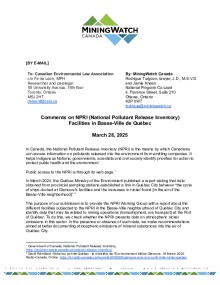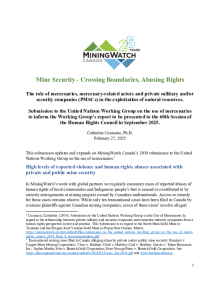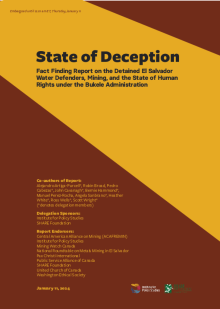Centering Human Rights in the Rush for Critical Minerals
MiningWatch Canada makes a submission to the UN Special Rapporteur on Climate Change, to inform the rapporteur’s upcoming report on “Human Rights in the Life Cycle of Renewable Energy and Critical Minerals.”
This submission highlights several examples of human rights violations linked to mining for critical minerals, from initial claims staking to exploration, exploitation, and recycling. While our focus is on mining in Canada and the activities of Canadian mining companies abroad, these violations are common globally.



















